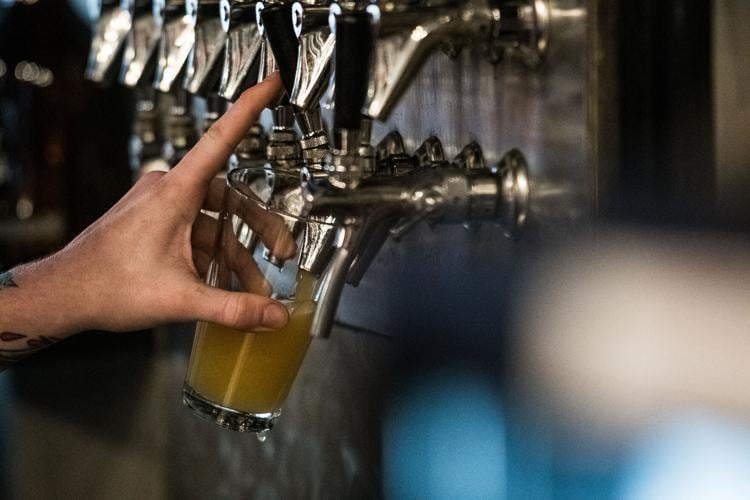COLUMBIA — One of the capital city's longest running breweries, River Rat, will close after 10 years in business, owners announced in a Facebook post.
The brewery, which sits right near Williams Brice Stadium, is among the last of the small Columbia breweries that opened during the craft beer boom of the early 2010s to close its doors. Of some of the original breweries in town, Columbia Craft and Hunter-Gatherer remain.
Mike Tourville, the brewery's owner, told Free Times that he'd had the brewpub on the market for potential buyers for a year and decided that it was time for him to retire after a decade in an industry that's notoriously hard in South Carolina — between what Tourville called "archaic" laws regarding beer, wine and liquor and an array of taxes that strangled business. Combine that with a growing supply of craft beer producers without an increased demand for it and Tourville said he knew it was time to bow out.
"There's just so much product out there, it's like what do you drink?" Tourville said. "You had to rely on being a brewpub (on top of distribution) in order to keep your doors open and it's just not something I wanted to do... for the next 10 years."
River Rat among the OGs of Columbia craft brewers
Over the brewery's decade in operation, Columbia saw the rise and fall of many breweries and taprooms as the demand for craft beer grew across the country, legislation changed what beer producers could and couldn't do and more breweries with bigger development dollars came in.
River Rat began in 2013, after Tourville developed a hobby for brewing beer out of his house. His friends liked it enough, he told Free Times when his brewery celebrated eight years in business, that he decided to open his own brewery.
Aside from Hunter Gatherer and Conquest Brewing Company, Tourville's place was one of the few brewpubs in the Columbia market at the time. And not long after Tourville founded his brewery — which became known for offerings like its award-winning Astronaut Sauce IPA — Swamp Cabbage Brewing joined the scene in August 2014. Conquest and Swamp Cabbage have since closed.
Though small in size, the handful of breweries were authentically old-school. Modern taprooms with live music and weekly trivia were still on the horizon for the city. But, over the last decade, that's changed. The smaller, micro-breweries often led by a local guy with a small staff, paved way for larger productions with impressive taprooms, all while navigating changing state laws.
How the Stone Bill affected Columbia's smaller breweries
Right after Tourville began his brewery, which he initially envisioned as a production facility, then-Governor Nikki Haley signed the "Stone Bill" into law in 2014. The bill made major changes to what beer producers were allowed to do, namely allowing production breweries like Tourville's to operate restaurants and sell food, while easing restrictions on how much a customer could purchase.
You'd think that would've equated to more business at places like River Rat and, in some ways, it did. What started as a production brewery became a brewpub, offering things like trivia and Sunday brunch. But it meant that businesses like Tourville's and ones like Swamp Cabbage, which had built their facilities in less-busy areas were fighting an uphill battle to get customers to their side of town. The idea had been that they'd focus more on production and distribution and less on outfitted taprooms and food offerings.
"The Stone Bill changed everything because it just meant everyone wanted to get into the business, everyone wanted to open up a brewery. Everybody saw it as a cash cow," Tourville said. "You just don't have that revenue stream without being a restaurant and getting people in your door... it's just not a sustainable business plan to be a production brewery and a brewpub."
The ease in restrictions weren't the only thing that set Columbia brewers back. The state, along with around 32 others, operates as a three-tier system when it comes to alcohol. Essentially, there are three categories that alcohol-sellers fall into — producers, wholesalers and retailers. Under the system, producers like Tourville can't distribute their own beer to retailers. They have to pay a distributor to get their products on shelves.
"I don't think anybody who opens a multi-million dollar business should have to be a customer of somebody's, particularly to produce a product," Tourville said.
Tourville isn't the only player in the city's beer scene to raise issue with the tier system. Scott Burgess, who owns German-style brewery Bierkeller, has long refused to distribute his popular beer regionally because he doesn't want to lose control of his beer's quality since he can't oversee the distribution of it.
As smaller breweries like River Rat and Swamp Cabbage have closed their doors, bigger players have entered the city's beer scene. Peak Drift Brewing Company, with its massive taproom space and hefty production capabilities, comes from the Middletons, an affluent family of business owners and restaurateurs reshaping much of the city's downtown food scene. It's led by the city's only female master-brewer, Ashley Kinart-Short. In June of this year, Delaware-based brewery chain Iron Hill Brewing Company opened in the BullStreet District.
"When we started selling beer ... there were 3,400 breweries. And as of today, there’s 15,000, going on 18,000 breweries just in the United States alone. So the beer bubble has busted," Tourville told Free Times in an interview in March 2022. "It’s not the heyday it used to be."
But, there's still room, and hope, in the city for smaller beer producers. In August, Bierkeller, the German-style brewery that started as a nomadic operation along the city's riverwalks, opened its brick-and-mortar location under the Canalside Plaza apartments. And longtime local places that opened in the late 2010s, like Columbia Craft Brewery and Hazelwood in Lexington, continue to offer an array of craft beer in their taprooms.
River Rat's final day in business, according to the Facebook post, will be Dec. 30. Through the week of Dec. 5, the brewery will offer 25 percent off beer and merchandise. The brewery doesn't have plans to continue distributing beer. Tourville and his wife own the building and he said he's not sure what the future holds for the space at the moment.











